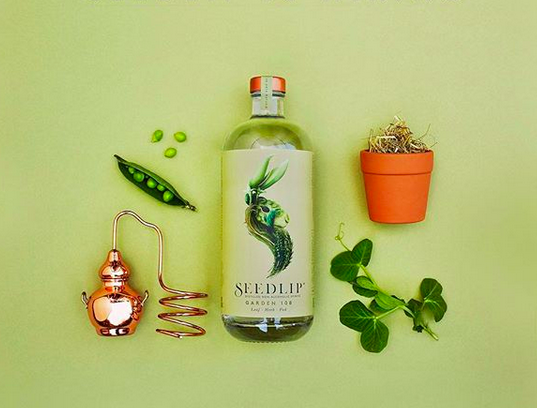
Diageo invested in Seedlip
One of the first surveys into attitudes towards low alcohol, released today by the alcohol social responsibility body the Portman Group, highlights an explosion in popularity of low and no alcohol alternatives as a way to drink responsibly, with younger people leading the trend.
Figures show that nearly a quarter (24%) of British drinkers have either already switched some of their drinking to low alcohol alternatives or would consider doing so in the next six months.
The YouGov polling into attitudes to low alcohol, the first of the Portman Group’s annual surveys into alcohol alternatives, showed that 7% of those surveyed have already switched some of their alcohol consumption to low or no alcohol alternatives, while a further 18% are likely to consider doing so in the next six months.
This switch being led by the so-called Generation Sensible with almost one in ten (9%) aged between 18-24 having already switched and those between 18-34 being the most likely to consider switching (22%).
The reasons given for opting for low alcohol beverages reflect increasingly responsible attitudes to drinking across all age groups in Great Britain. Nearly a third of those surveyed (32%) said that being able to drive home from social events was the main reason for opting for low alcohol beverages, while over a quarter (26%) said being social without drinking excessively was a key factor. 13% said they would drink lower alcohol drinks to stay within the low risk drinking guidelines.
The survey also revealed demand for low and no alcohol products is high amongst those that drink at home as well as in pubs, bars and restaurants, with 60% of those who drink alcohol and would consider drinking low alcohol beverages saying they would consider drinking low alcohol alternatives at home, 59% at a restaurant and 55% at a pub.
John Timothy, Chief Executive of the Portman Group, commented, “It’s fantastic to see so many people embracing low alcohol alternatives as a way to continue to enjoy a drink whilst doing so responsibly. For many people there are significant benefits to having a drink with friends – but at the same time it’s important that people don’t drink too much.
'These findings are a reflection of the positive trends we are seeing when it comes to declining binge drinking levels and the cultural shift that is happening in the relationship between young people and alcohol.
“Many producers are already investing heavily in exciting low and no products. Given the importance of this sector to helping people make healthy choices about their drinking, more needs to be done to support its growth. Getting rid of confusing descriptors would support consumers and help lead to the development of more products.”
The Portman Group is calling for the government to update the current system of labelling to unlock further growth in the sector. Currently there are four ways for a low alcoholic drink to be described. Polling undertaken by the Portman Group earlier this year highlighted that 68%3 of British adults thought it was clearer to have just one term to define a drink containing no more than 0.5% of alcohol.
Portman Group member companies have been leading innovation in this area. Examples include:• AB InBev has a commitment that no or lower alcohol beer products will represent at least 20% of their global beer volumes by the end of 2025, as part of the brewer’s Global Smart Drinking Goals, which also include a pledge to spend $1bn on social norms marketing campaigns globally to encourage smart drinking behaviours.
• Carlsberg have a commitment towards zero irresponsible drinking by 2030 and as part of this an aim to offer an alcohol-free alternative wherever their alcoholic options are sold.
• Diageo have invested in non-alcoholic drinks company Seedlip and launched an ultra-low Gordon’s Gin & Tonic flavoured drink.
• Heineken have partnered with Club Soda to support mindful drinking festivals, launched Old Mout 0.0 cider, and introduced Heineken ®0.0 draught beer to pubs through their Blade countertop draught system.
• Molson Coors offers customers and consumers in the UK a range of quality no-alcohol and low-alcohol products and has a global target of offering no and low-alcohol choices in all countries they have brewing and selling operations in by 2025.
• Pernod Ricard have launched non-alcoholic premium drink Ceder’s in the UK; the company’s first non-alcoholic alternative to gin to launch anywhere globally.
(source: Portman Group)
